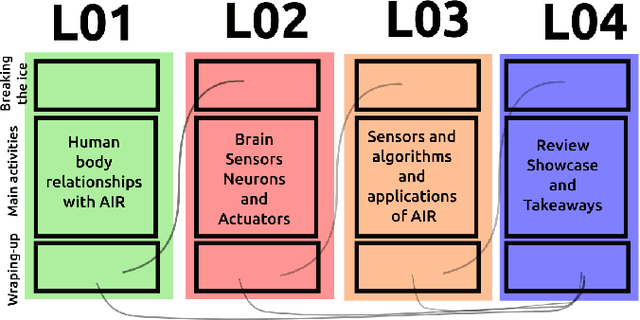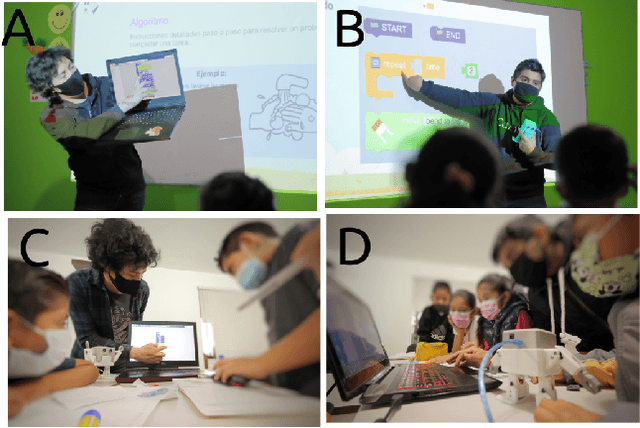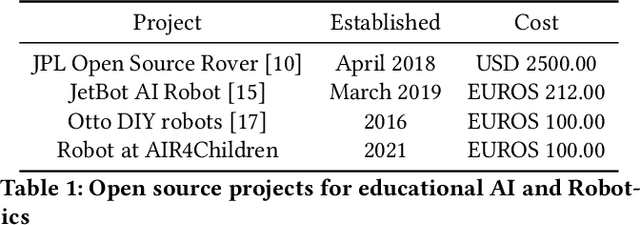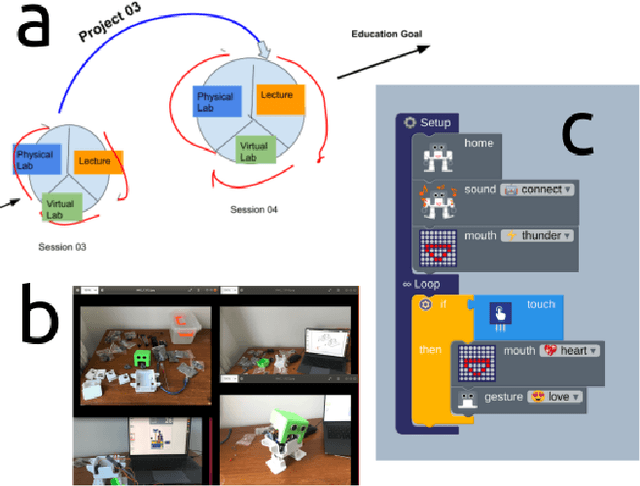Rocio Montenegro
Piloting Diversity and Inclusion Workshops in Artificial Intelligence and Robotics for Children
Mar 10, 2022

Abstract:In this paper, we present preliminary work from a pilot workshop that aimed to promote diversity and inclusion for fundamentals of Artificial Intelligence and Robotics for Children (air4children) in the context of developing countries. Considering the scarcity of funding and the little to none availability of specialised professionals to teach AI and robotics in developing countries, we present resources based on free open-source hardware and software, open educational resources, and alternative education programs. That said, the contribution of this work is the pilot workshop of four lessons that promote diversity and inclusion on teaching AI and Robotics for children to a small gender-balanced sample of 14 children of an average age of 7.64 years old. We conclude that participant, instructors, coordinators and parents engaged well in the pilot workshop noting the various challenges of having the right resources for the workshops in developing countries and posing future work. The resources to reproduce this work are available at https://github.com/air4children/hri2022.
AIR4Children: Artificial Intelligence and Robotics for Children
Mar 13, 2021

Abstract:We introduce AIR4Children, Artificial Intelligence for Children, as a way to (a) tackle aspects for inclusion, accessibility, transparency, equity, fairness and participation and (b) to create affordable child-centred materials in AI and Robotics (AIR). We present current challenges and opportunities for a child-centred approaches for AIR. Similarly, we touch on open-sourced software and hardware technologies to make a more inclusive, affordable and fair participation of children in areas of AIR. Then, we describe the avenues that AIR4Children can take with the development of open-sourced software and hardware based on our initial pilots and experiences. Similarly, we propose to follow the philosophy of Montessori education to help children to not only develop computational thinking but also to internalise new concepts and learning skills through activities of movement and repetition. Finally, we conclude with the opportunities of our work and mainly we pose the future work of putting in practice what is proposed here to evaluate the potential impact on AIR to children, instructors, parents and their community.
 Add to Chrome
Add to Chrome Add to Firefox
Add to Firefox Add to Edge
Add to Edge